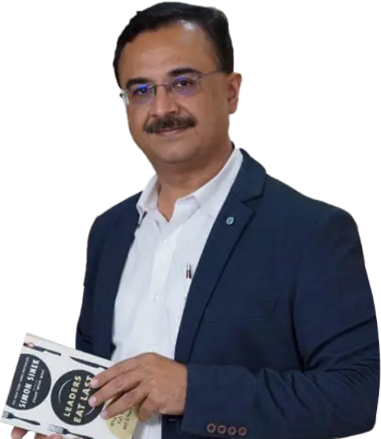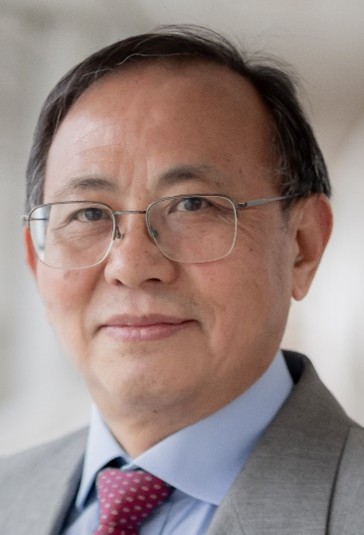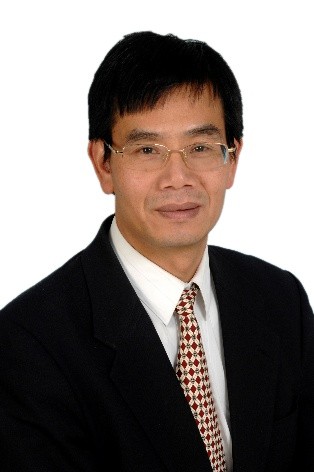

Artificial Intelligence is transforming industries and societies, but its deployment raises critical concerns about fairness, security, and accountability. This talk explores the foundations of building robust and responsible autonomous intelligent systems. We will examine approaches for bias mitigation, including domain adaptation techniques to reduce distributional disparities and few-shot learning strategies to enhance robustness when working with limited data. The discussion extends to co-learning in multimodal and networked systems, the role of federated learning for preserving data privacy in distributed environments, and defence strategies against adversarial machine learning attacks. We also highlight progress in multitask and continual learning to increase adaptability and efficiency, alongside the importance of explainability and interpretability for transparent decision-making in safety-critical contexts. By integrating these pillars, the session presents a roadmap for creating AI systems that are not only high-performing but also fair, secure, resilient, and aligned with human values, in line with the vision of autonomous intelligent systems at the heart of ICNSC 2025.
Dr. Ketan Kotecha is a globally renowned researcher and educator in artificial intelligence, deep learning, computer algorithms, and machine learning. An alumnus of IIT Bombay, he is recognized among the top 2% of scientists worldwide, as per Stanford University rankings. With an illustrious career spanning over three decades, Dr. Kotecha has made a lasting impact on AI research, evidenced by over 250 SCI-indexed publications, 22 patents, and more than 13,000 citations. A dedicated mentor, Dr. Kotecha has guided 25 PhD scholars, advancing AI research across diverse domains. He has secured over 15 major research grants, amounting to more than INR 15 crores, from prestigious national and international funding agencies. He has also received joint research funding from top-tier global universities, including Arizona State University (USA), Brunel University (UK), Aston University (UK), Temple University (USA), the University of Milan (Italy), King's College London (UK), Coventry University (UK), University of Oulu (Finland), RUDN University (Russia), University of São Paulo (Brazil), University of Kragujevac (Serbia), University of Winnipeg (Canada), Tilburg University (Netherlands), and KU Leuven (Belgium). Additionally, he is a key expert on a funded supply chain project at Cambridge University (UK). Dr. Kotecha's expertise has earned him invitations to speak at over 25 prestigious institutions, including Imperial College London, Cambridge University, RUDN University (Russia), and Swinburne University (Australia), among others. He has been appointed Visiting Research Professor at Aston University (UK) and Swinburne University (Australia), Research Professor at RUDN University (Russia), and Visiting Professor at UCSI University (Malaysia). Beyond academia, Dr. Kotecha has held transformative leadership roles. He served as Dean of Engineering at Nirma University for seven years and as Vice-Chancellor of Gujarat's largest university for three years. Currently, he serves as Dean of the Faculty of Engineering at Symbiosis International University, where he has played a pivotal role in securing major funding for initiatives such as the INR 30 crore Bajaj Engineering Skills Training Centre and a state-of-the-art INR 50 lakh 5G use-case lab in AI-based telemedicine. He also established the Maker Lab (sponsored by Infosys) and the IDEA Lab (sponsored by AICTE) at Symbiosis Institute of Technology. Additionally, he served as CEO of a DST-sponsored technology business incubator for three years and is the founding Head of the Symbiosis Centre for Applied Artificial Intelligence. Dr. Kotecha bridges the gap between academia and industry, having provided consultancy to leading organizations including Philips, Avegen UK, ArcOne USA, DRDO, and Dassault Systèmes. His visionary leadership, groundbreaking research, and commitment to applied artificial intelligence continue to shape the future of education and technology on a global scale.

This talk introduces the fundamentals of supply chain management and combinatorial optimization. It provides an overview of key scientific methods and research topics in the field, with a focus on abstracting scientific challenges from practice, developing solution methods based on theoretical analysis, and applying these results across a wide range of real-world contexts — from multinational corporations to small and medium-sized enterprises (SMEs) in diverse sectors.
Chengbin Chu is currently a Professor at Université Gustave Eiffel, ESIEE Paris, and the Grattia Laboratory, France. He is also a member of the editorial board of the International Journal of Production Research. He received his B.Sc. and M.Sc. in Electrical Engineering from Hefei University of Technology, China, and INPL, France, in 1985 and 1987, respectively. He pursued his Ph.D. at INRIA and earned his Doctorate in Computer Science and Production Management in 1990 from the University of Metz, France. Afterward, he continued his work at INRIA, where he served successively as an Expert Engineer and Research Officer until 1997. From 1997 to 2008, he was a Professor of Industrial Engineering at the University of Technology of Troyes and the Founding Director of the Industrial Systems Optimisation Laboratory. From 2008 to 2017, he was at Ecole CentraleSupélec, Université Paris-Saclay, where he held a Chair in Supply Chain Management, sponsored by multinational companies, including Carrefour, Danone, LVMH, SAFRAN, and PSA Peugeot-Citroën. His research interests include the modelling, analysis, and optimisation of manufacturing systems and supply chains. He has authored or co-authored more than 280 articles in prestigious international journals, such as Operations Research, IEEE Transactions, SIAM Journal on Computing, European Journal of Operational Research, Transportation Science, Transportation Research Parts B & E, and the International Journal of Production Research. He received the "1998 Best Transactions Paper Award" from the IEEE Robotics and Automation Society and the "2020 Best Paper Award" from Omega. Additionally, he has received distinctions for three of his articles published in international conference proceedings. In recognition of his academic contributions and their significant practical impact on various businesses and organizations, he was awarded the First Prize of the Robert Faure Awards in 1996. He was an Overseas Chair Professor at Xi'an Jiaotong University and served as the Overseas Director of the Department of Industrial Engineering from 2006 to 2010. He served as an Associate Editor of IEEE Transactions on Robotics and Automation from 2001 to 2004 and has also been an Associate Editor for IEEE Transactions on Industrial Informatics and IEEE Transactions on Automation Science and Engineering and a member of the editorial board of Computers & Industrial Engineering.

As new industrial revolution emerges globally, traditional industries are embarking on a new stage of transformation, reconstruction, and paradigm shift. The new generation of information technologies represented by the Internet of Things (IoT), big data, and artificial intelligence (AI) is driving the widespread adoption and rapid development of the Industrial Internet of Things (IIoT). In the future, the deep integration of Information Technology (IT) and Operational Technology (OT) within the IIoT will lead to comprehensive innovations in production methods, operational models, and business models, while also introducing new safety and security challenges. These challenges include integrated safety and security requirements analysis, increased attack surfaces leading to difficulties in anomaly detection and localization, and complexities in risk assessment due to the deep integration of cyber and physical systems. Traditional safety or security method alone is no longer adequate to meet the safety and security demands of the future IIoT. There is an urgent need for deeply integrated theories and methods of both domains. This plenary speech will address the aforementioned safety and security challenges by exploring the integrated protection theories, methods, and key devices for future IIoT from five aspects: requirement analysis, anomaly detection and localization, integrated risk assessment, endogenous safety and security, and hardware protection.
Dr. Shuanghua Yang, Member of the European Academy of Sciences and Arts, is currently Vice President of Guangzhou Nanfang College, Dean of the School of Engineering, and Chair Professor at the Institute of Advanced Studies, Beijing Normal—Hong Kong Baptist University. He previously served as Head of the Department of Computer Science at the University of Reading, UK and tenured professor; Head of the Department of Computer Science and tenured professor at Loughborough University, UK; Chair Professor and Executive Vice Dean of the Graduate School at Southern University of Science and Technology; and Chair Professor at Zhejiang University, among other positions. In 2010, he received the Honeywell Award from the UK's Institute of Measurement and Control in recognition of his outstanding contributions to the field of measurement and control. In 2014, he was awarded the Doctor of Science (DSc) degree, regarded as a "lifetime achievement award" by Loughborough University, UK. His main research areas are industrial Internet security and industrial artificial intelligence.